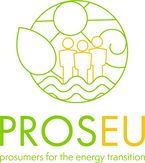
IÖW-Projects
Every year the IÖW works on approximately 60 research projects. Since its existence the instiute has completed more than 600 projects.
Enable advanced search
42 running Projects // 350 Projects in total
Holistic Biodiversity Management in Construction Materials Industry (GiBBS) Strategies and Measures for Biodiversity Protection in Context of Resource Extraction, project phase 1
Development of a service to support the adaptation to climate change (KlimAdapt) by extending the knowledge base, specification and implementation support
Corona and Sustainability In search of a new balance between market, state and civil society for a resilient society
Prospective synergistic planning of development options in regiopols for the example of the agglomeration area of Rostock PROSPER-RO
Climate Protection Potential of Digitalization Potentials of digitalization for the reduction of greenhouse gas emissions in the energy sector
Advisory opinion on the definition of social economy enterprises (Sökon)
Entwicklung einer Wärmestrategie für das Land Berlin
ReCap – Capping Macro Rebounds Reconsidering the Role of Energy and Resource Productivity for Economic Growth, and Developing Policy Options for Capping Macro-Level Rebound Effects
Designetz: A Modular Concept for the Energy Transition From Isolated Solutions to an Efficient Energy System of the Future
Environmental Awareness in Germany 2018 Representative Survey on Environmental Awareness and Environmental Behaviour in 2018, including Socio-scientific Analyses and Development of a Youth Policy Agenda
ProPower: System Analysis Power2Products Economic and socio-ecological implications of a cross-sectoral power utilisation
LiLa Living Lahn Socio-economic monitoring and assessment of changes in ecosystem services
Climate Resilient City of Bremen BREsilient
Making Berlin compliant with the Paris resolutions: Update of the Feasibility Study Climate Neutral Berlin 2050 Feasibility Study
PROSumers for the Energy Union (PROSEU) Mainstreaming active participation of citizens in the energy transition






